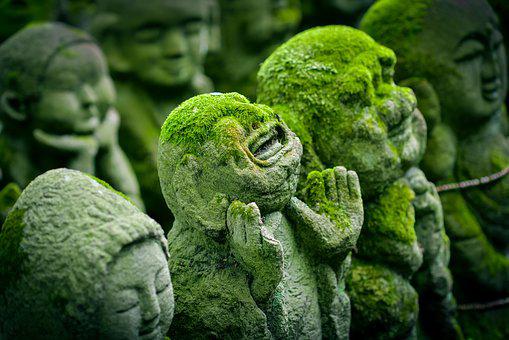When the amnesia of a man becomes that of an entire society in search of memory and roots.
Stripped of its emblematic monuments, Athens seems agonizing, at least in the eyes of certain filmmakers, for example that of David Cronenberg (Crimes of the future). Even those who live there sometimes prefer to look away from the Pantheon, thus seeking to show something of their country other than its tourist clichés.
This is the posture that Christos Nikou adopts in his first feature film, Applesafter several years as assistant director for Brigitte Roüan, Richard Linklater and especially Yorgos Lanthimos, who is considered his spiritual father and who shares his taste for enigmatic climates and characters with tortuous destinies (The Lobster, The Favorite). Almost prophetic film, shot in 2019 and describing, yes, a pandemic, Apples plunges us less into social chaos than into an inner quest, that of human memory, totally erased in those who suffer from this unexplained syndrome – and which will remain so.
This evil arises by chance and several citizens quickly recognize the symptoms, like this bus driver, hardly surprised to see that Aris (Aris Servetalis, of an implacable intensity) remains in his place at the end of the circuit, unable to remember where he lives, let alone who he is. At the hospital, as with his peers, he is given a number and invited to join a program to build a new identity, a laborious task when you no longer know your tastes and habits, including sexually. . In this joyless world, stripped of digital technologies and where magnetic tape cassettes serve as instruction guides or medical prescriptions, Aris receives the difficult task of inventing another life on a completely blank page.
To achieve this, he can count on intrusive doctors who push him to put himself in sometimes strange situations where he learns to socialize again, or to experience strong sensations, like at the cinema in front of The Texas Chainsaw Massacre. It is there that he meets Anna (Sofia Georgovassili), a luminous woman whose good humor contrasts with the severity of someone who could easily be confused with Daniel Day-Lewis. She suffers from the same illness, subjected without knowing it to the same exercises as him, and between them, a strange relationship is woven, sometimes behind the wheel of a dilapidated car – Anna knows how to drive, but does not know how to brake!
How to become someone when you no longer know where you come from? An agonizing existential question that Christos Nikou dissects through the monastic, and sometimes antipathetic, figure of a man desperate to reclaim his past, contemplating the present as if it were a vast desert. Amidst empty streets, uncrowded squares or silent countryside, Aris painfully tries to get closer to his goal, one apple at a time, which he greedily tastes. finally knowledge?
Melancholic metaphor of a Greece in search of solutions to get out of the doldrums, Apples also presents itself as the portrait of an era both near and far, multiplying the artifices to stimulate a failing memory. Ironically, the anachronism of all this pseudomedical paraphernalia arouses a greater or lesser flood of memories in spectators of a certain age. But Christos Nikou never strays into the flashy meanders of science fiction, opting for a minimalist aesthetic, drab lighting and faded interiors. So many simple but effective strategies to portray a pandemic universe afflicted by the worst virus: our collective amnesias. Greece has never seemed so familiar to us as in Apples.

